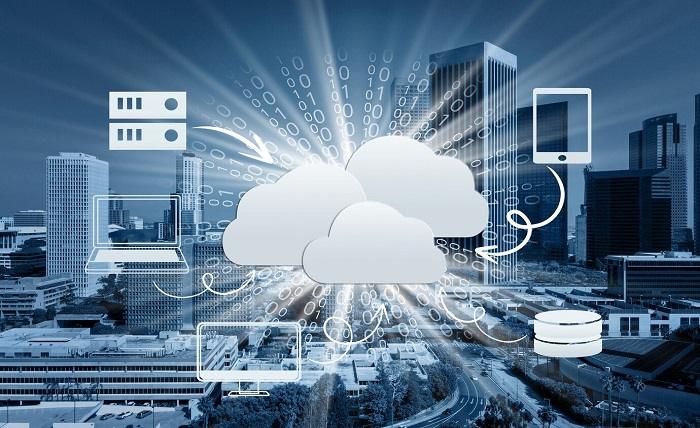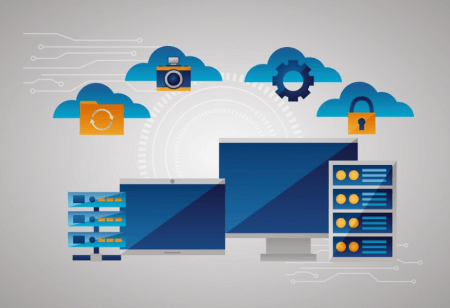As the digital world advances rapidly, cloud computing has become a fundamental tool for companies of every size. In the United States, cloud technology adoption has been on a swift rise, driven by the demand for adaptable, cost-effective, and dependable IT solutions. Looking ahead to the next decade, cloud computing’s importance to the U.S. market will be vital as it fosters innovation, bolsters business resilience, and fuels economic expansion. This transition is fueled by several significant factors:
Increasing Security in eCommerce Sites
Cloud computing has transformed the security of eCommerce businesses, helping platforms better protect their data. Real-time backup and disaster recovery are two critical features that help secure sensitive information, especially for huge online businesses such as online casinos, which handle crucial data of millions of players.
This ensures that if a breach occurs, data can be restored with minimal downtime. As such, these online casinos in USA can guarantee American players of ultimate safety, which allows them to enjoy their favorite games with peace of mind. This safety efficiency not only applies to casinos but also to any eCommerce platform that handles customers’ sensitive data, such as credit card information.
Cost Efficiency
Cloud computing is a major cost-saver for American companies. It lowers the need for hardware and physical data centers. Instead of investing large sums upfront, businesses pay for cloud services based on usage, turning capital expenditures (CapEx) into operational expenditures (OpEx).
This model especially benefits small to medium businesses that may lack the capital for large-scale IT infrastructure. For instance, a start-up can access powerful computing resources without incurring high initial expenses, paying only for what they need to support their operations. This flexibility appeals to both smaller companies and large corporations looking to streamline budgets and allocate funds to growth areas.
Disaster Recovery and Business Continuity
Cloud providers offer advanced disaster recovery and backup solutions, crucial for keeping businesses running smoothly, even when unexpected events occur. Americans know the potential damage that can come from data loss—whether from cyber threats or natural disasters. Cloud services help companies retrieve data quickly, reducing downtime and avoiding major losses.
Most cloud providers offer data redundancy, which means data is copied across several locations. If a single data center is affected by an outage, information can be accessed from another, so operations can continue without disruption. This built-in resilience makes cloud platforms ideal for any business that values consistent, reliable service.
The Future of Cloud Computing in the US
Looking forward, cloud computing’s role in the U.S. market will become even more essential. Several emerging trends are set to shape how Americans use and benefit from cloud technologies:
Artificial Intelligence and Machine Learning
Cloud platforms are now equipped with advanced AI and machine learning features, allowing U.S. companies to use these technologies without heavy investments in costly hardware. AI and ML can support a range of functions, from customer insights and automation to language processing and predictive analytics.
For example, businesses can leverage AI-powered data analysis to identify customer trends or automate customer service functions using intelligent chatbots. By incorporating these technologies into their operations, American companies of all sizes can innovate in ways that were previously out of reach.
Edge Computing
The Internet of Things (IoT) phenomenon keeps growing, and edge computing is becoming essential to reduce the time it takes to process data. Edge computing reduces latency by processing information closer to its source. The process of making data will be more responsive and faster.
Take, for instance, the automotive industry: self-driving cars need to work on massive data in real time. Edge computing facilitates data processing that happens close to the vehicle, reducing delays and making instant responses possible. This shift supports the expansion of IoT devices in the U.S., enhancing the reliability of services Americans use daily.
Hybrid and Multi-Cloud Strategies
Many American companies are adopting hybrid and multi-cloud strategies to avoid being dependent on a single cloud provider. By spreading their resources across different cloud providers, companies can maintain flexibility, avoid vendor lock-in, and increase redundancy.
For example, a business may use one provider for machine learning and another for storage, optimizing their setup according to the strengths of each provider. Hybrid cloud solutions encompass private and public clouds, providing enhanced security, making them attractive for regulated industries like healthcare that need strict data management protocols.
Sustainability
Environmental sustainability is another driving factor in cloud computing’s future. With a growing awareness of climate change, Americans are inclined towards supporting enterprises that support eco-friendly practices. Leading cloud providers are now committed to reducing carbon emissions, often investing in renewable energy and optimizing data centers for energy efficiency.
For instance, many cloud providers are striving to operate with zero carbon emissions and rely solely on renewable energy sources. This commitment to green computing not only aligns with American values of sustainability but also supports companies’ environmental goals, allowing U.S. enterprises to limit their impact on the environment while offering high-quality services to consumers.







